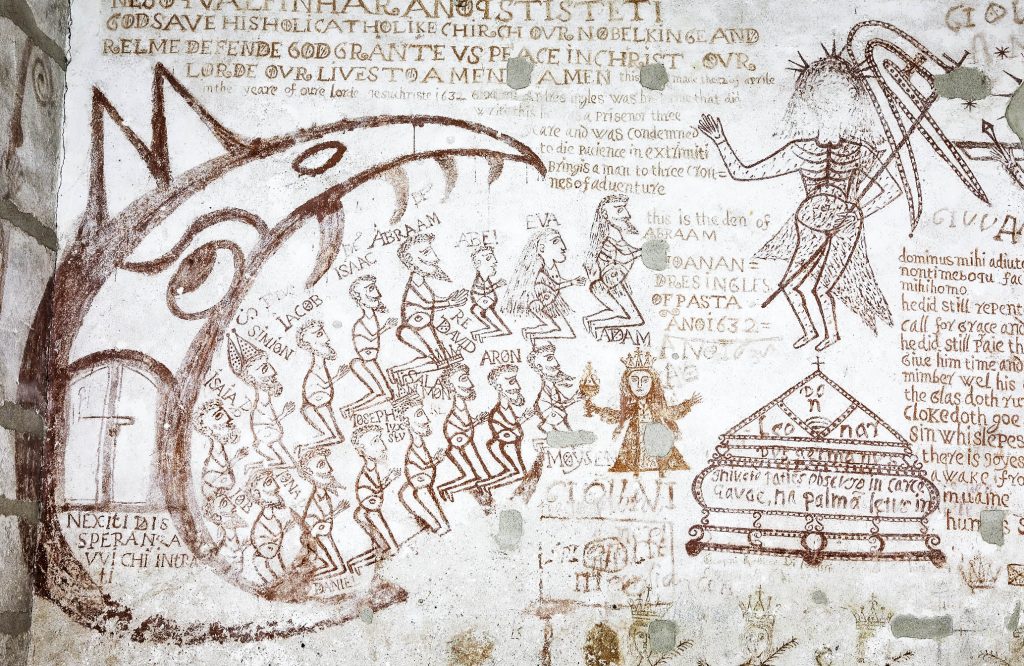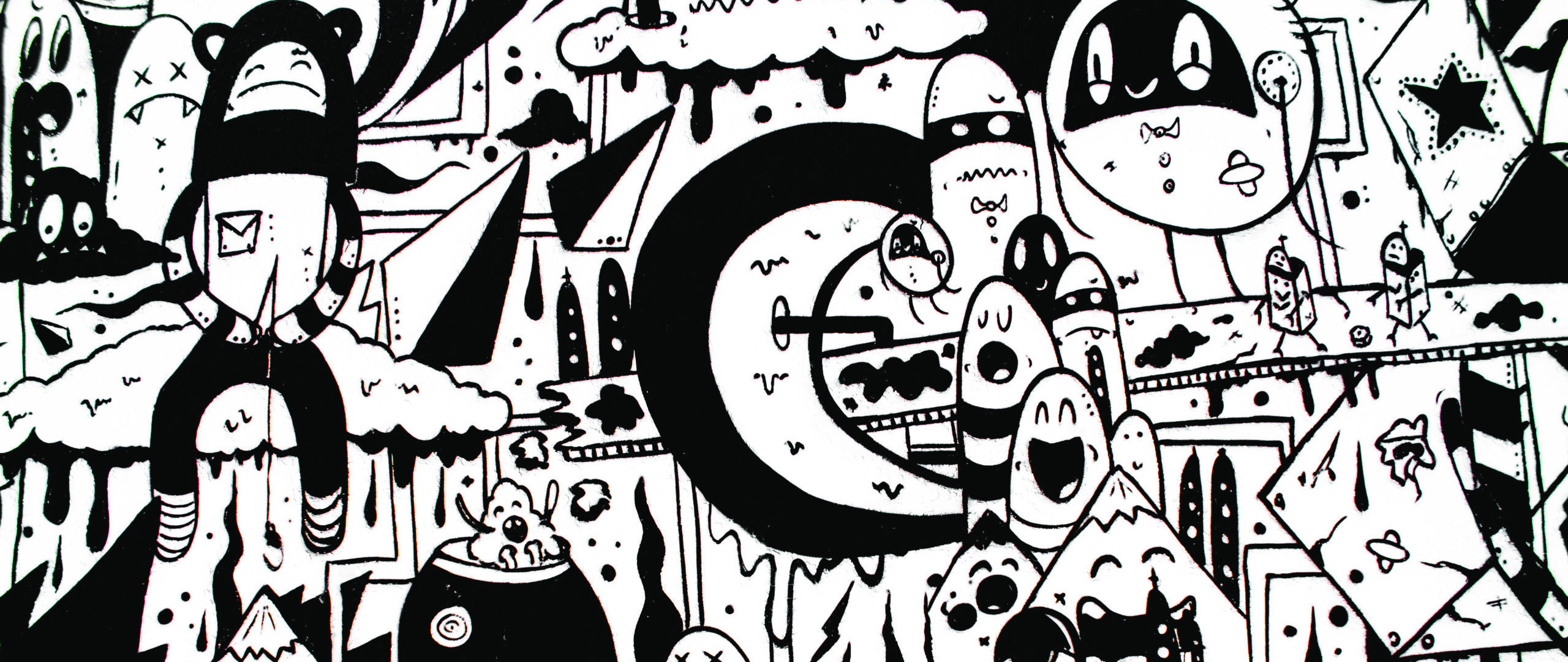We see the world in an inverted way. This is very easy to say, very easy to put down in the form of a single, short sentence, but to actually understand what is meant by this represents a change a perspective so radical there very few of us are ever likely to make it. And even if we do make this ‘quantum leap’ in the way we perceive the world we’re going to have to stay very quiet about it because all those people who haven’t made the jump (which is to say, 99.99% of humanity) are going to think that we have lost the plot in a big way. We will lose all credibility whatsoever if we start to talk about the Inversion.
Despite the odds that are stacked against us however, and despite the tremendous negative social reinforcement that comes into play when a radical revision of our perception of reality is threatened, it remains the case that we will have no actual relationship with ‘the truth of things’ unless we do get out of the reality-inverting ‘mental box’ that we’re stuck in. Since we don’t have an honest relationship with the truth (which is clearly the only type of relationship that’s worth having!) this has adverse consequences for our mental health. We talk an awful lot about mental health, and what important steps we can take to facilitate it, but at the same time that we waffle on happily about the importance of mental health we still want to stay in the box, and we also still want to carry on not seeing that we’re in it. This attitude of ‘wanting two contradictory things at the same time’ just isn’t going to work out for us, therefore. It’s not a very mature basis to proceed upon!
‘Inversion’ simply means that we’re seeing everything as a photographic negative of itself. Essentially, it means that we’re seeing ‘what is real is being unreal and what is unreal as being real’, as the mystics have frequently said. Again, this is easy enough to say but forbiddingly hard to actually comprehend. What could be the point in such a thing existing, anyway? How would we even survive a day in the world with such a hopelessly back-to-front way of looking at things? From a purely Darwinian viewpoint, the idea that we are all suffering from a total inversion of perception doesn’t sound like a very plausible proposition. How can being ‘fundamentally confused about the nature of reality’ be an advantage from an evolutionary perspective?
What we are essentially talking about here is complexity and the need to screen complexity out in everyday life. Once we see this then it becomes perfectly clear why inversion as a cognitive perceptual strategy makes sense in a pragmatic way and is useful to us in a practical, day-to-day terms. One way of talking about complexity is to say that it arises as the inevitable of consequence of ‘all things being intimately involved with all other things’ (no matter how we might try to separate them, or view them as being separate). If everything we examine involves every other thing – which is the Buddhist principle of ‘mutual interpenetration’ – this means that ultimately every element in the mix is every other element and is also, at the same time, the whole shebang. Every part is ‘the whole in disguise’, we might say. This makes making sense of the world pragmatically impossible; if we suddenly experienced this irreducible interconnectedness then the chances are that we would regard this experience as nothing short of a psychotic breakdown. We need the world to be ‘simplified down’ (or ‘dumbed down’, if we want to put it like that) in order to carry on functioning in the straightforward way that we are habituated to functioning – the perception of raw unprocessed complexity will banjax us every time! This doesn’t mean that the complexity isn’t still there however – we’re just ignoring it. ‘Ignoring complexity’ is our chosen strategy, in other words.
This is no mere theory that we can approve of (or dismiss) in accordance with our unexamined prejudices. For one thing the theory that ‘there can be no such thing as an all-encompassing theory’ is not a theory – it’s not a theory because it’s not saying what something is, but only what it isn’t. It isn’t adding to our store of concepts and models and ideas, it’s taking away, it’s subtracting. And for another thing, it’s not a mere theory because we can directly experience complexity (which is to say, ‘radical interconnectivity’) anytime of the day or night – all we need to do is drop the thinking mind. Admittedly this isn’t something we can do at will, just because we want to, (since wanting and willing come out of the thinking mind) but it is but the experience of interconnectedness is something which many of us can attest to many people can attest to – artists, poets, mystics, meditators, ingesters of psychedelic plants or drugs, along with those of us who don’t fit into those categories but have this strange experience of ‘oneness’ all the same, in a perfectly spontaneous way. To live life on the basis that there isn’t an essential interconnectedness to everything might be the approved way to do things (with respect to the dominant rational-materialist culture on this planet) but it is also sterile to the point of being frankly pathological. No good can come of it either for the individual or for the environment as a whole; the only thing being oblivious to interconnectedness is good for is fuelling consumerism – it serves to ‘fuel the cult of the dissociated sociopathic ego’, so to speak.
In general, therefore, we can say that in order for us to be practically effective in our interactions with our environment it helps to simplify down the world so that there is no, or very little, complexity in it (since, as we have just said, the awareness of complexity banjaxes our capacity to conduct purposeful activities). Goals can only exist in a decomplexified universe. The plus side of the deal is therefore that our purposeful activity gets empowered, facilitated, validated, etc, whilst the minus side is that life becomes more and more superficial for us, until it reaches the point of being a mere rigmarole, a dry pointless routine and nothing more. This – needless to say – is always the way with mechanical existence – mechanical existence is a form of existence with no joy, humour or subtlety in it, only dull seriousness.
Complexity – which is to say, the irreducible involvement of everything with everything else – is thus the very juice of life, the very substance of it (even though, strictly speaking, there is no actual ‘substance’ in it – ‘substance’ being an abstract notion that comes into being as the result of the decomplexification process). The ‘heart of all things’ is not in the things themselves but in their mutual relatedness, so to speak; ‘All mass is interaction’, says Richard Feynman. When we go down the ever-narrowing road of decomplexification (which is the direction of increasing entropy) we inevitably end up in a world without a heart, which is a situation that clearly has very little to recommend it, no matter how convenient it might be. What we’re looking at here is something very familiar therefore – what we’re looking at here is the time-honoured business of ‘doing a deal with the devil’. We enter into a deal with the Evil One because of the attractive prospect of making a lot of short-term gains and the price we pay for this convenience (without realizing that we’re paying it) is that we get caught up in ‘the inversion of the natural order’ which is the mechanical or causal world.
This is a genuine dilemma because there is – as we have said – a practical utility to perceiving the world in a decomplexified or oversimplified way; to perceiving the world as being made up of multiple different unconnected parts (which is to say, in a differentiated way) is not just ‘advantageous’ to us, it is essential. We need to look at things this way in order to survive and yet at the same time by adapting successfully to the determinant reality we lose our ‘connection to indeterminacy’, our connection with ‘openness’. In the mechanical world (the world of parts or things, the world of Form, the world of cause and effect, the world that is built on the back of rules) there can be no awareness of openness. For the Shadow World to keep its integrity as ‘an actual world’ (and not be shown up as a mirage) the light has to be kept at bay. We can’t bring the light into the Shadow World without destroying it, obviously enough – even though it is also true that the SW depends on this light at the same time for its existence). Satan gives us his instrument – which is the instrument of the thinking mind – to make free use of and so the challenge for us is to use this tool, this device, this instrument, without falling under its spell.
In practise however this almost never happens. We almost always do fall under the spell. When it is said that ‘humanity is asleep’ this is what is meant – what is meant is that we have fallen under the spell of thought and that we are now in some sort of ‘enchanted sleep’, helplessly hypnotised by our own concepts of the world. The hypnosis that we’re talking about here is ‘the hypnosis of the inversion’, the hypnosis of ‘falling into an inverted view of reality’ without knowing it. The ‘inversion’ which we are making so much of is a very straightforward thing and it is very easily explained – if we are to believe wholeheartedly in ‘the World of Things’ then we have to ignore the background to everything (which is connectivity or openness). If we are to adapt to the Realm of Form then we have to focus exclusively on the various forms, and this necessarily entails being blind to the way in which all forms have their origin in Formlessness, which is the primary reality. Mechanical existence – in a nutshell – is that state of being that comes about as a result of ‘self-veiling’; it is the state of being that ensues when the veil of forgetfulness falls over our eyes so that we no longer see that all games (as James Carse says) are freely entered into, and that the rules which we all take so much for granted were voluntarily accepted in the first place, and would not be there unless we had accepted them…






